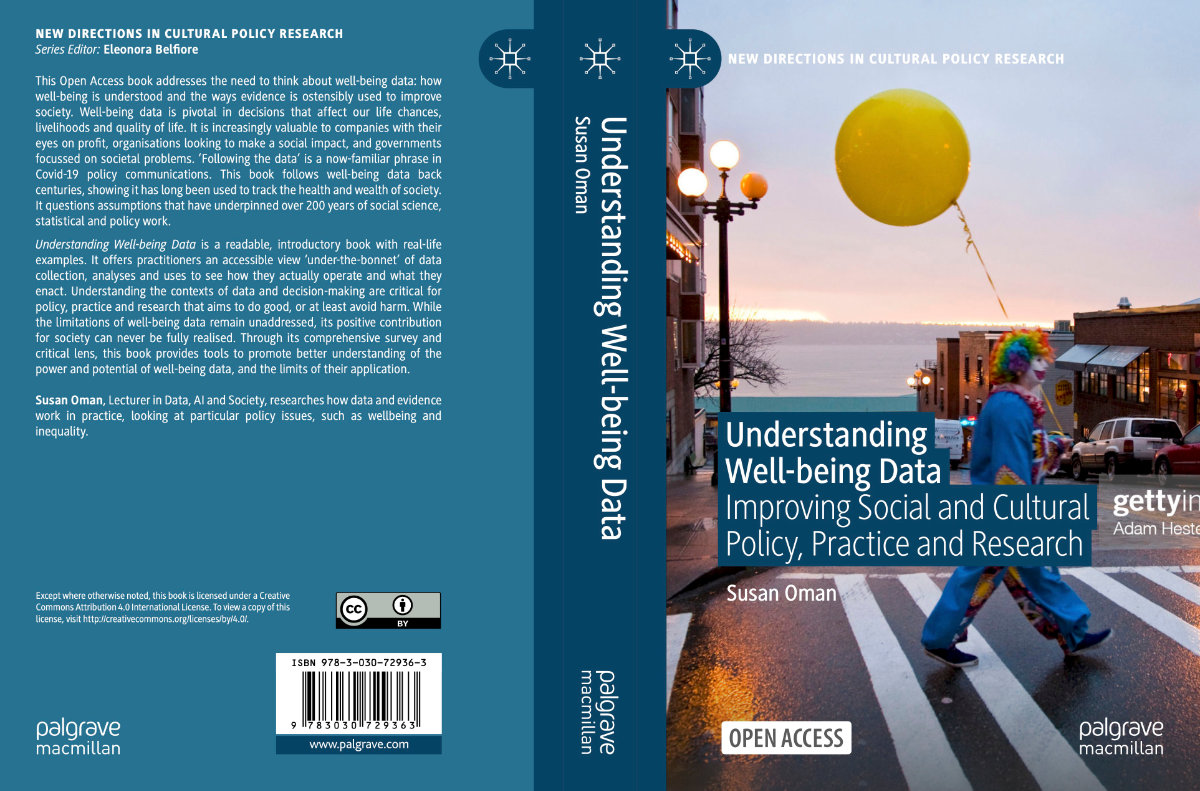out now

My book, Understanding Well-being Data, is out. It has been published under creative commons license and is available to read for free on this website and as an Open Access title via the publisher, Palgrave Macmillan, and thanks to funding from the Wellcome Trust. This funding has also enabled the book to be made available as a free Kindle.
You can also purchase paperback and hardback copies from the publisher and other popular stockists, including: Foyles, Waterstones, WHSmith, Target and Amazon.
This website is an opportunity to collect together resources related to the book, and to allow it to continue to evolve, and I would love to hear from you about what you think.
See the about tab for more on what this website is for, and how it might be useful for you. Or, go straight to the book tab to get reading. The media hub tab leads to animations, details for invited talks and interviews, as well as endorsements from professors across policy, politics, economics, digital sociology and data studies and practitioners.
This Open Access book addresses the need to think about well-being data: how well-being is understood and the ways evidence is ostensibly used to improve society. Well-being data is pivotal in decisions that affect our life chances, livelihoods and quality of life. It is increasingly valuable to companies with their eyes on profit, organisations looking to make a social impact, and governments focussed on societal problems. ‘Following the data’ is a now-familiar phrase in Covid-19 policy communications. This book follows well-being data back centuries, showing it has long been used to track the health and wealth of society. It questions assumptions that have underpinned over 200 years of social science, statistical and policy work.
Understanding Well-being Data is a readable, introductory book with real-life examples. It offers practitioners an accessible view ‘under-the-bonnet’ of data collection, analyses and uses to see how they actually operate and what they enact. Understanding the contexts of data and decision-making are critical for policy, practice and research that aims to do good, or at least avoid harm. While the limitations of well-being data remain unaddressed, its positive contribution for society can never be fully realised. Through its comprehensive survey and critical lens, this book provides tools to promote better understanding of the power and potential of well-being data, and the limits of their application.
